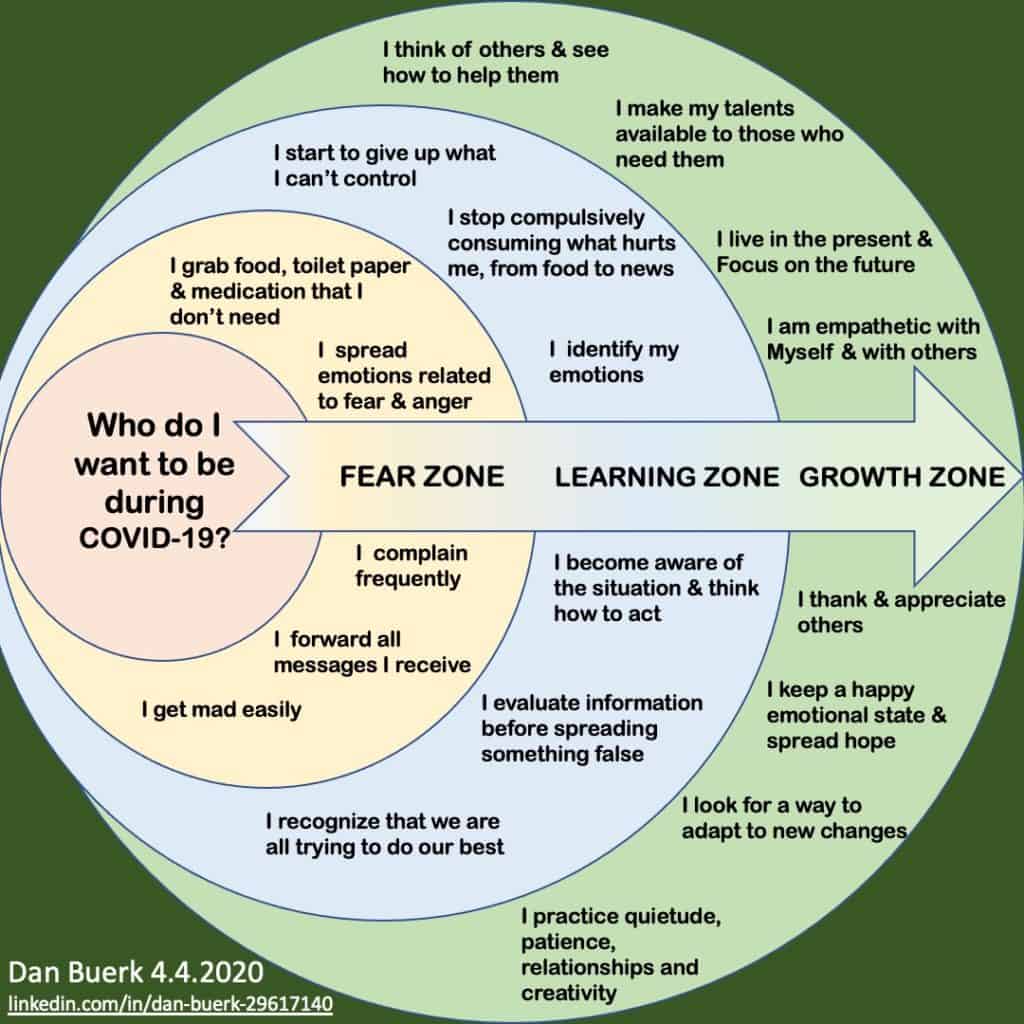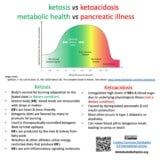A Lifetime In Submarines And Isolation for Self-improvement
Carl Jung on Isolation | The Stockdale Paradox and Quarantine | Paying Forward Lessons Learned | Thriving in Isolation Stress | Arctic Isolation | Life on Boats – Everyone Matters & All are Learners | What Does Not Kill Strengthens | Simulating Life on a Boat | The Stockdale Paradox’s Perpetual Motion | Looking Backwards from Coronavirus Isolation |Looking Forward from Coronavirus Isolation | Seven Lifetime Learning Ideas | Patrol’s End – Breaking out of Physical Isolation | Blending Isolation Habits & Opening to the World | Other submariner and sailor experiences | References
People ask me on the phone, WhatsApp or Skype, “How has the coronavirus quarantine affected you?” I reply, “Well, I can’t dance with my partners anymore, go to the athletic club and use their sauna, or visit my brother at his assisted living facility, but that’s about it. All of my family and most of my friends are dispersed across the world and the majority of my connecting was already being done online.” Physical distancing should not have to be social distancing or isolation in our hyperconnected world. Otherwise, as the British say, ‘he keeps himself to himself.’
That answer surprises recent acquaintances, but not those that know I spent decades working inside submarines. For many, the coronavirus quarantine has ruptured their routines and even provoked fear. We discuss what they’re doing to adapt.
Sometimes I share a bit of how my life patterns keep me stress free. Discussions with others have encouraged me to share these ideas more widely. Seven patrols, cut-off from the world for months, provide the backdrop for thoughts that you might find useful while managing physical distancing and isolation during the coronavirus quarantine.

Using isolation as an opportunity for growth – Carl G Jung and dreams
An internet post discussing a Carl Jung dream provoked my thinking. (1) A young man complains to his captain about the ship being quarantined from entering Port April. He asks his captain for relief from the burden of isolation. The seasoned sea captain replies that he was once unexpectedly quarantined. At first, he was resentful. But then he turned from morose thoughts to improving his health, diet and mental state. He stopped his reliance on alcohol, cards and cigarettes for amusement. He turned lemons into lemonade and developed a User’s Manual for himself—a set of habits and practices he employed to change his body and mind. At dream’s end the captain gets asked if he felt deprived of springtime. He replies that now he carries Spring within himself.
This got me thinking about submarine life and the coronavirus quarantine.
- Are both an opportunity for growth and change?
- What work would an individual undertake to achieve such a transformation?
- How can we channel personal growth when constrained by circumstances like the coronavirus quarantine?
Life on a submarine revolves on watchstanding, studying and drilling. This perpetual cycle of continuous learning and adaptation keeps sailors in a growth mindset. The complicated mechanics of a nuclear warship enveloped by the ocean demands brain plasticity. If there is a single measure predictive of a crew’s ability to perform it’s their level of knowledge.
Understanding the Stockdale Paradox can help us in a quarantine period
You must maintain unwavering faith that you can and will prevail in the end, regardless of the difficulties—and at the same time, have the discipline to confront the most brutal facts of your current reality, whatever they might be.
VADM James Stockdale, USN
When I was studying electrical engineering at the US Naval Postgraduate school, the Superintendent, RADM Robert H Shumaker, USN would sometimes substitute for an absent professor. His lectures were logical and well-prepared. In his naval white uniform scribbling lengthy differential equations on a blackboard it was hard to imagine that he spent eight years as a POW in Hanoi. While confined, RADM Shumaker developed the tap code used by our airmen in captivity to increase their unity and resolve under VADM Stockdale’s leadership. RADM Shumaker invited VADM Stockdale to speak to us on several occasions.
A few years earlier I had met RADM Richard O’Kane USN, the fearless commanding officer of USS Tang, and listened to his story of persistence and survival. His narrative encompassed dedication to duty when his immediate superior opposed nearly every one of his innovations as well as the harrowing narrative of oppressive treatment as a POW. Ironically, on Tang’s last war patrol her own torpedo circled back and sank the sub with an almost complete loss of life.
Paying it forward – sharing hard lessons
Stockdale, Shumaker, O’Kane and other naval and marine officers shared a rich legacy of personal examples that inspired me to my core. They gave me insight into answering important questions.
- Why do some individuals survive conditions that destroy others? (2)
- How do we manage living in cramped quarters for extended periods like the coronavirus quarantine?
- What tools help transform chronic stress into fuel instead of poison?
- How do submarine crews manage endless weeks of stress and work?
- Where do we find options to turn a rat cage into a rat park?
There are no definitive, one-size-fits all answers. I humbly offer my observations, just as previous war generations offered me theirs. Because patrols were transformative periods for me and my shipmates, then perhaps we can use this current quarantine to aid in our personal growth. My hope is that the explorations in this post are a small seed that will bloom into a larger tree as the ideas are elaborated in your heart and mind.
And in that cooperative spirit of “thinking, learning & growing together”, I’d appreciate you sharing your ideas and feedback in the comments below.
Thriving under isolation stress – Submarine patrols & quarantine
No man will be a sailor who has contrivance enough to get himself into a jail; for being in a ship is being in a jail, with the chance of being drowned. A man in a jail has more room, better food, and commonly better company.
Samuel Johnson as quoted by Boswell (3)
U.S. nuclear submarines have nearly unlimited endurance. They can generate water, electricity and power for years, but are constrained by provisions. In fact, isolation from society for lengthy periods makes submarine patrols the ultimate quarantine.
Weeks of quarantine life under Arctic ice
In 1990 I transited the Bering Straits submerged in USS Puffer (SSN 652) as her executive officer. Our boat was constrained by an ice sheet 4 feet above the boat’s sail and rock 4 feet beneath the lower rudder. We continued beneath the frozen Chukchi Sea and surfaced at the North Pole. A small tilt of the boat’s posture in the straits, an unexpected failure of complicated technology or a personnel error underneath the frozen wastes could be disastrous.
There was no panic when the unexpected struck. Weeks of individual and team training resulted in appropriate reactions. The transit to the North Pole and back home to San Diego CA took a long time. Despite chronic tension, everyone stayed focused to ensure success.
- Can a submerged transit under thick sheets of ice be a metaphor for the coronavirus quarantine situation?
- What measures are required to travel outside your home?
- What procedures do you implement when you step out of those recommended guidelines?
Life on boats – Everyone matters & all are learners
Privacy aside, improper operation of a submarine water closet can flood the entire boat. Therefore, training starts the moment a sailor goes down the hatch. Every action counts and some procedures are so critical that they are performed by two individuals to ensure proper operation. Knowing that every movement has consequences can be great motivation to pay attention at School of the Boat sessions. But a grueling schedule can deprive even veteran sailors of essential sleep and vitality. A “can do” attitude can drive the human body to exhaustion and failure. When that point is reached, then effective learning or watchstanding ceases and rest and relaxation are required.
A bit of humor in a skit performed by crew members. A movie. Weight training (padded weights, of course, to keep any metal to metal noise from emanating from the boat). Or perhaps a turn on the exercise bicycle lashed in an available nook. But often the preferred tonic is sleep.
What’s life like on a sub? – What doesn’t kill, strengthens
Life on a submarine is a quarantine on steroids. Excerpts from a witty summary of how to replicate submarine life at home will give you an idea—
Buy all the groceries and supplies you think you’ll need for 2 months, with the following exceptions: no milk, cereal, fruits, vegetables or alcohol. Take what you buy home and bring it one item at a time into the house. You may not keep any food in your cabinets or closets as these will be set aside to store spare parts. You may not use the refrigerator as this will be turned into a freezer. Any pre-made candies, cookies, or snacks must be kept in bed with you.
Lock the door, close the windows, draw the shades and tear out the phone.
You have one week to study the instruction manuals for every appliance, utility and piece of equipment in your house. At the end of this week you must be able to quote any passage out of these from memory and pass a written exam. Until you can do this, you may not have access to TV or radio and you may not sleep for more than 3 hours at a time, with 9 hours awake between sleeping.
But wait, your simulation is not done yet
Each Monday through Friday morning whether you would normally be awake or not, you must pretend to start a fire in your house, put on a gas mask, and pretend to put the fire out. Wear the gas mask for at least one additional hour each time.
Each Monday through Friday afternoon whether you would normally be awake or not, you must study the same instruction manuals for 2 hours that you studied the first week.
Continue the above for 3 months even though you have only 2 months’ worth of food.
The Lean Submariner, “What’s It like to Live on a Submarine”
Humor and laughter are important spices to life and I hope you chuckled a bit as you read this apocryphal guide on how to simulate submarine life at home. With its funny style it captures the Stockdale Paradox’s dichotomy: an outer cycle of arduous reality feeding an inner cycle of personal growth.
Turning the Stockdale Paradox’s perpetual motion to advantage
“Hope for the best, prepare for the worst” is the norm in submarines. A submariner’s life in Leviathan’s belly defies hourly hardships and inconveniences. A community of mutual support and trust is essential for survival. Individuals and crew prosper under the constant strain. Despite cramped quarters, heavy workloads and deprivation from modern comforts, submarine crews thrive during lengthy quarantine conditions. It’s not the screening for bright individuals that’s transformative. It’s the gritty lifestyle that polishes to the keenest potential edge.
The most junior sailor has the power of life and death over the entire crew. Similarly, an innocent child could infect the retirement home where grandma lives with coronavirus. Proper crew vigilance and action will determine if our behemoth collides with disaster. Impacting the ocean bottom, a subterranean mountain, a floating iceberg or a transiting ship could shatter the hull. Such a catastrophe would encase the crew in a steel coffin that lays still in the ocean depths. Hourly, daily, weekly then monthly vigilance is the only preventive measure. To persist and endure that marathon requires a foundation of sound habits.
- Are submarine sailors a breed apart or are there submarine lifestyle lessons that apply to any period of isolation like the coronavirus quarantine?
- Are there submarine routines and practices that facilitate dealing with chronic stress and danger?
Adaptation in coronavirus quarantine
Looking backwards from quarantine’s isolation
As you probably noted in the humorous summary of submarine life, a lot of time is spent learning, moving and doing—but, not necessarily in the healthiest of fashions.
Decades have passed since I commanded USS Olympia (SSN 717) from February 1994 to September 1996, a Los Angeles class attack nuclear submarine. It took 18 years of training and education to get to that achievement. With the knowledge I have since acquired, there are things I would change if I had a similar command today. For example, the food we served and our exercise regimen were not optimal. The submarine environment could have been more compatible with human rhythms.
Looking forward from quarantine’s isolation
During the current coronavirus quarantine, I am learning and applying these new ideas to myself. Unlike life in an isolated submarine, developing our personal Owner’s Manual while stranded at home has advantages that allow diving into our core. After all, we have tremendous connectivity with all the world’s knowledge and resources; and, we have time with ourselves.
Seven lifetime learning ideas
Here are 7 ideas I now focus on:
1. Spirituality & stress management:
- Singing – stimulating the vagus nerve
- Yoga – relaxing through breath & motion
- Zen/Mindfulness – working breath & mindset
2. Strengthening muscles (sarcopenia):
- Exercise – promoting muscle health with high intensity resistance training
- Time restricted eating & fasting – generating ketones & growth hormone
3. Speeding mental growth:
- Ketosis – fasting for mental clarity. Ketosis vs. Ketoacidosis.
- Reading & Writing – focusing mind & heart
- EdX courses & Khan Academy lessons – learning formally & informally
4 Sensing & tasting – The with whom, what, where, why & when of eating:
- Gut-Brain Axis – feeding the gut & stoking immunity
- Diet – Nutritional Density – adopting ancestral eating for health
- Fasting – healing the body; saving money, time & extending supplies
- Cooking – preparing nose-to-tail meats, wild fish & game, sprouting & fermenting
5. Synchronizing to sunlight’s clock:
- Circadian Rhythms & Sunlight – setting internal clocks
- Exposure to Nature – connecting to an extended biome
- Deep Sleep – blocking blue light before bedtime
6. Synergizing mind-body-heart with passions:
- Competitive Shooting – creating mind, hand, eye coordination
- Hunting/Fishing – relishing ancestral habits
- Dancing – connecting musically with others
- Piano & guitar – fusing mind, hand, eye & throat
7. Sympathetic engagement:
- Metabolic Multiplier – volunteering to amplify metabolic insights
- Low carb conferences and events – tinkering to fine tune my owner’s manual
- Chris Palmer MD – creating hope for integration disorder
- What ideas are helping you?
- Do you have a revised focus because of quarantine?
- Has physical isolation changed your ideas of fitness and health?
Patrol’s end – Breaking out of physical isolation or coronavirus quarantine
Transitioning from isolation to the world at large
When the patrol is closing and home port approaches, accidents tend to increase. Why? It’s human nature to daydream about embracing loved ones; to imagine smelling fresh air; or, to desire to run barefoot along the seashore. Then in that distracted second a catastrophe can start.
My first submarine was USS Barb (SSN 596). The memories of USS Scorpion (SSN 589) and USS Thresher (SSN 593), both lost at sea in the 1960’s, were much alive as we struggled with Barb’s idiosyncratic failures.
Some commanders refer to the tendency to relax at the end of a mission as Post-Deployment Let Down Syndrome. The key point is to think about transitioning from a patrol mindset to a normal routine. What patrol habits do we maintain as we regain contact with the world?
Blending isolation habits & opening to the world
After a long mission submarines often test their ability to emergency surface. It’s important for all onboard to know that complicated systems continually exposed to corrosive seawater, high pressure and stress will respond when needed for casualty conditions. In personal terms:
- Are you undermining your emergency response systems with poor habits?
- How will your body respond to the stress of infection?
- In what ways have you prepared to optimize your metabolic health?
- How are you going to emerge from the coronavirus quarantine – compromised or enhanced?
There’s no better time than this coronavirus quarantine to take steps to optimize physical health and mental well-being. Making lemonade out of lemons is an old American recipe. May you have fair winds and following seas on your journey through the coronavirus quarantine.
Other submariner and sailor experiences:
Moore, B. (2020 March 31). Coronavirus: Submarine captain’s advice on social isolation. BBC News. T “Ryan Ramsey knows what it’s like to self-isolate. He was the captain of the nuclear submarine HMS Turbulent between 2008 and 2011 and once spent 286 days at sea without seeing the sky. The Gosport-based consultant says conflict management is key to surviving time in confined spaces and has five top tips to help see you through.”
Rotenberg, K. (2020 April 5) Mida teavad allveelaevnikud eraldatusest? (What do submarines know about isolation?) Espira. “Living and working in relative isolation today is a new and exceptional situation for many. Strange, unfamiliar, confusing and uncomfortable? In a previous post, I shared astronauts’ experiences of being in isolation. But how to cope under water for a long time? Military personnel serving on submarines must transport in an environment similar to astronauts. What have they learned about isolation and coping with limited society?”
George, R. (2020 April 8) How months at sea prepared me for lockdown on land-My experiences hiding from pirates on the Indian Ocean helped when the loneliness of coronavirus self-isolation kicked in. But there are still things I miss. MIT Technology Review. Rose George is a British author and journalist. She is the author of books including Nine Pints, Ninety Percent of Everything, and The Big Necessity. @rosegeorge3
Weiner, S. (2020 April 9). How a Nuclear Submarine Officer Learned to Live in Tight Quarters—You get comfortable being uncomfortable. Nautilus. Steve Weiner is the founder of Very Scarce, a business design studio. He used to lead portfolio companies at Expa and drive nuclear submarines in the U.S. Navy. He has an MBA from The Wharton School and a BS from the U.S. Naval Academy. Instagram: @steve Twitter: @weenpeace
References:
- Attributed to a dream by Carl G Jung by Cin La Buscadora De Libros & Librería Infinito – oficial, 26.3.2020, accessed 29.3.2020
- Robert Sapolsky, “Why Zebras Don’t Get Ulcers: A Guide to Stress, Stress-Related Diseases, and Coping,” New York: W H Freeman, 2004
- James Boswell, “The Life of Samuel Johnson, LL.D., Including a Journal of His Tour to the Hebrides,” Vol 1, Philadelphia: Claxton, Remsen & Haffelfinger, 1868, p 282. Quoted on 31.8.1773 and 23.9.1773
If you enjoyed reading this, you might enjoy:
- Pain started my ketogenic journey (Part 1),
- Raj’s journey from obese and diabetic to healthy
- Food from my local farm regenerates soil and bodies
Facts checked by Cecile Seth
Keywords: coronavirus quarantine, continuous learning, stress, community, submarines, Carl Jung, James Stockdale, Stockdale Paradox, stoicism, POW, imprisonment, nutrition, sunlight, exercise, sleep, yoga, mindfulness.
This work is licensed under a Creative Commons Attribution 4.0 International License. This content is available for sharing and distribution if attribution is given.












5 Responses
[…] to use a ketogenic diet. The path leading to a low-carbohydrate lifestyle was convoluted, but a life at sea predisposed me to find instruments to guide my journey. At the start I did not know what bearings […]
[…] Submariners use isolation for self-improvement […]
[…] For more ideas see these lifetime learning ideas. […]
[…] Submariner on self-improvement […]
[…] Submariner on self-improvement […]